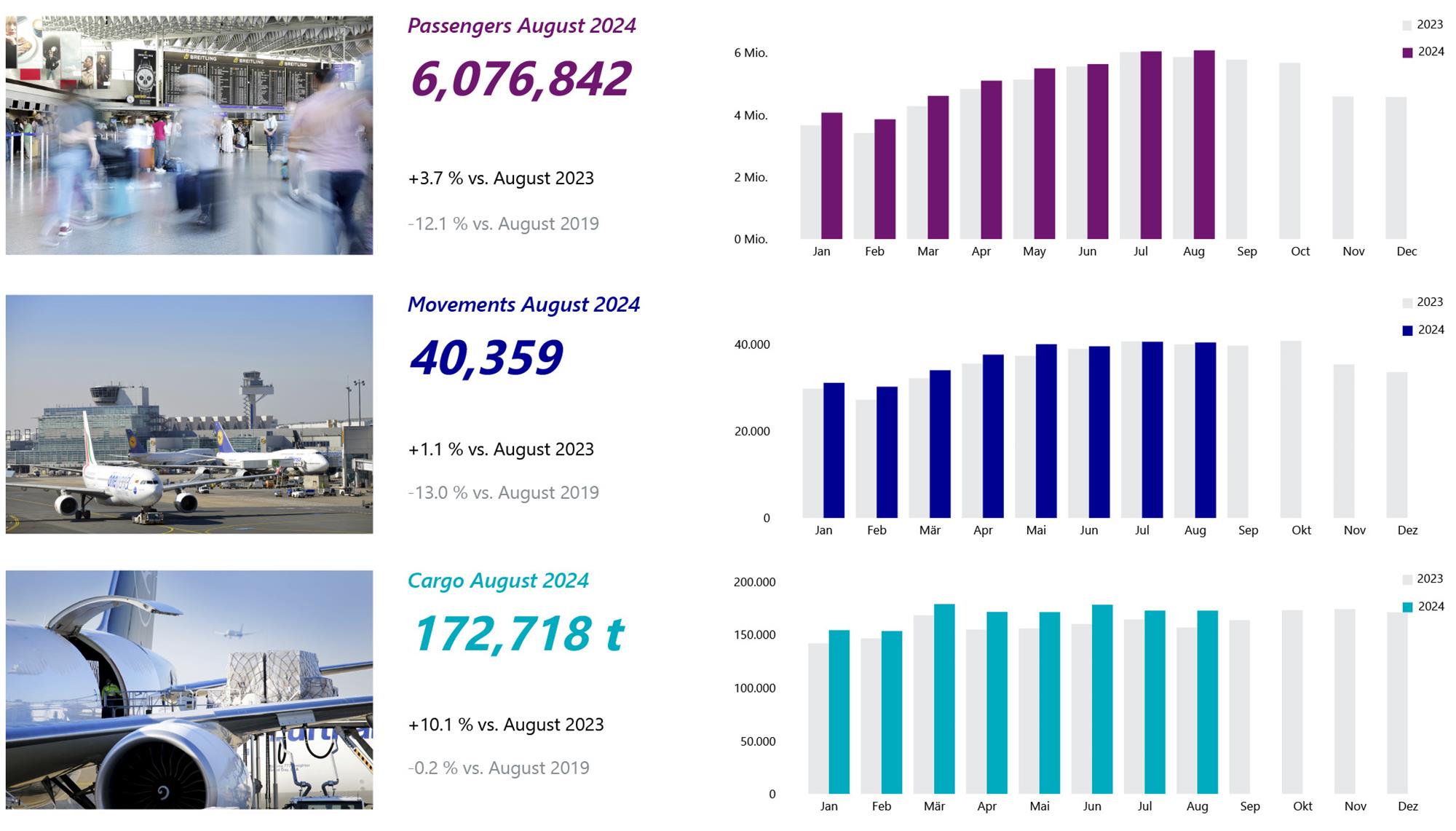Frankfurt Airport (FRA) — Europe's busiest cargo hub — continued its recovery in August, recording double-digit year-on-year growth in cargo volumes.
Fraport, which operates Frankfurt Airport, said Frankfurt's cargo throughput, comprising airfreight and airmail, surged by 10.1% year-on-year to 172,718 metric tons in August 2024.
This, however, is almost flat month-on-month, when Germany's largest aviation gateway recorded a volume of 172,741 metric tons in July, which was 5% higher than the previous year.
In June, the airport handled 178,324 metric tons, which was 11.4% higher year-on-year.
In May, the airport recorded 171,353 metric tons, which was also 9.9% higher than the year-ago level. In April, Frankfurt saw 171,501 metric tons of cargo and in March, the volume reached 178,898 metric tons.

[Source: Fraport]
For August, the number of aircraft movements edged up by 1.1% to 40,359 takeoffs and landings compared to the same period last year.
Maximum takeoff weights, or MTOWs, climbed by 2.6% year-on-year to approximately 2.5 million metric tons.
Meanwhile, the airport mentioned that intercontinental passenger traffic at Frankfurt saw particularly strong growth for China, up 48.5% year-on-year, India, up 36.5%, and Singapore, up 14.5%, which would have carried some of the cargo in the bellyhold.
Frankfurt Airport operator Fraport (FRA) earlier in September announced that it is divesting from its stake in Delhi International Airport Limited (DIAL) in India.
But while it is selling its stake at the Indian gateway, FRA has said that it is increasing its investments in Frankfurt Airport announcing earlier this year the development of a new cargo masterplan.
The investments will focus on digitalization, redesigning the CargoCity South Area, and developing a new LogisticsHub West. Fraport expects cargo volumes in Europe's busiest air cargo hub to increase to around three million tonnes per year by 2040.